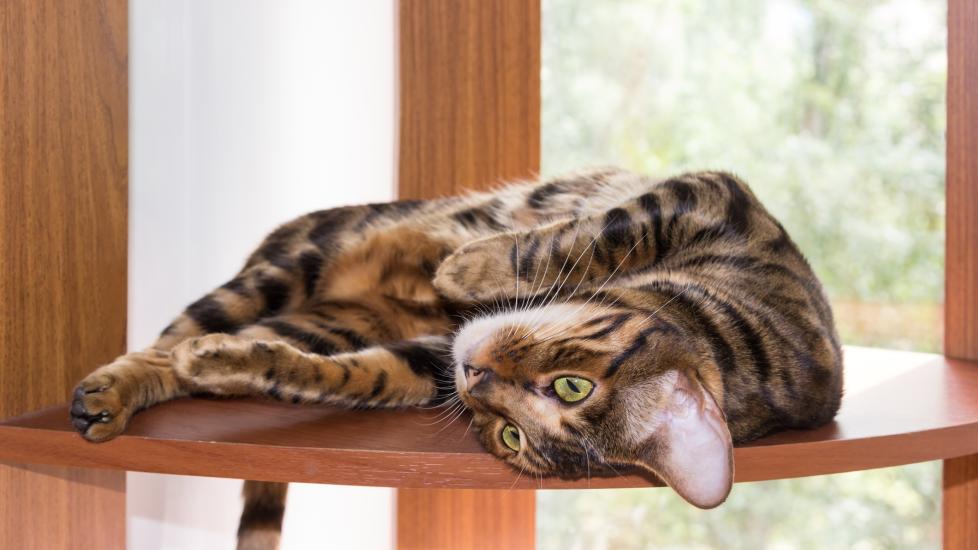Introduction:
The Toyger is a relatively new domestic cat breed that was developed by crossing a Bengal cat with an American Shorthair. The goal was to create a small-to-medium-sized feline with a tiger-like appearance, hence its name which is a portmanteau of “toy” and “tiger.” These cats are known for their striking resemblance to wild tigers due to their spotted coats and distinctive markings. They were first bred in the 1980s by a Swedish breeder named Leila Nordquist.
Size and Weight:
Toygers typically weigh between 7 and 15 pounds (3.2 to 6.8 kilograms) when fully grown.
Coat Color and Pattern:
One of the most notable features of the Toyger is its coat pattern, which mimics the stripes and rosettes found on a tiger’s fur. The coloration can vary from silver-tabby to brown or even orange tabby, with black stripes overlaying the base color. Some Toygers may also have white markings on their chests and feet. Their coats are short and sleek, requiring minimal grooming compared to longer-haired breeds.
Temperament:
Known for being friendly, active, and playful, Toygers make great pets for families with children who enjoy interactive playtime. They are generally good with other pets as well if socialized properly during their early developmental stages.
Health Issues:
Like many hybrid breeds, Toygers can be prone to certain health issues such as hip dysplasia, dental problems, and hypertrophic cardiomyopathy (a heart condition). Regular checkups with a veterinarian are essential for early detection and treatment of any health concerns.
Exercise Needs:
These energetic cats need plenty of mental stimulation through play and environmental enrichment. Interactive toys like laser pointers or feather wands can help keep them entertained while promoting physical activity.
Grooming Requirements:
Their short coats require only occasional brushing to remove loose hair and maintain shine. Weekly combing with a soft bristle brush should suffice to keep tangles at bay without creating excessive stress for your pet.
Life Expectancy:
Toygers usually live around 14–16 years given proper care and regular veterinary visits. However, this can vary based on individual genetics and lifestyle factors.
Litter Box Training:
It’s important to start litter box training your Toyger kitten right away so they learn where it’s appropriate to relieve themselves. Positive reinforcement techniques work best; reward your kitty with treats after successful trips to the litter box.
Suitability for Apartment Living:
With enough attention and activities provided indoors, Toygers can thrive in apartments thanks to their adaptable nature and moderate exercise needs.
Special Considerations/Fun Facts:
Toygers often develop strong bonds with their human companions and can become quite loyal. They enjoy climbing and perching high up, so providing vertical space within the home is beneficial for these agile felines. Additionally, because of their unique look, some Toygers have been featured in advertising campaigns and media productions.
